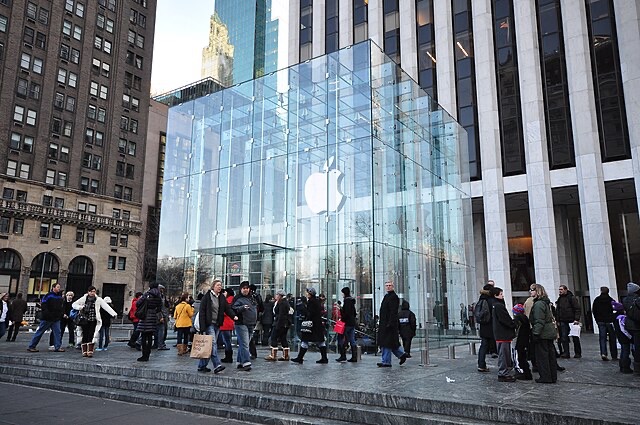Victory for privacy advocates as Tulsi Gabbard confirms withdrawal following months of negotiations over encrypted American citizens’ data
The UK has withdrawn its controversial demand for Apple to provide “backdoor” access to encrypted user data following months of high-level negotiations with US officials, according to America’s Director of National Intelligence Tulsi Gabbard.
In a post on X on Monday, Gabbard revealed that she had been working “closely with our partners in the UK, alongside President Donald Trump and Vice-President J.D. Vance” to ensure Americans’ private data remains protected from foreign government access.
“As a result, the UK agreed to drop its mandate for Apple to provide a ‘back door’ that would have enabled access to the protected encrypted data of American citizens and encroached on our civil liberties,” Gabbard wrote.
The development marks a significant victory for privacy advocates who had warned that creating such backdoors would fundamentally undermine digital security and set a dangerous precedent for authoritarian regimes worldwide.
The BBC understands Apple has not yet received any formal communication from either the US or UK governments regarding the withdrawal. A UK government spokesperson said: “We do not comment on operational matters, including confirming or denying the existence of such notices.”
The controversy began in December when the UK secretly issued Apple with a formal notice under the Investigatory Powers Act, demanding the right to access encrypted data from its users worldwide. The order specifically targeted Apple’s Advanced Data Protection (ADP) feature, which provides end-to-end encryption for iCloud data including photos, notes, and backups.
Apple responded by withdrawing ADP from the UK market entirely rather than comply with the demand to create a backdoor. The company stated at the time: “We have never built a backdoor or master key to any of our products or services, and we never will.”
The tech giant had been preparing for a legal challenge at the Investigatory Powers Tribunal, scheduled for early 2026, which may now not proceed given the UK’s apparent withdrawal of the demand.
Privacy campaigners have cautiously welcomed the news. Sam Grant from civil rights group Liberty told the BBC the decision was “hugely welcome” if confirmed, warning that creating backdoors would present “a huge threat to our personal and national security.
This would leave politicians, campaigners and minority groups especially at risk of being targeted,” Grant said. “As long as this power exists within the Investigatory Powers Act, it remains a risk that any future government might also try to use it to create a back door into other end-to-end encrypted services we all use.”
The UK’s demand had sparked a fierce diplomatic row with the United States. In February, Gabbard had called the British order an “egregious violation” of American rights, prompting bipartisan Congressional leaders to threaten to curtail intelligence sharing arrangements between the two nations if the UK did not back down.
Senator Ron Wyden and Representative Andy Biggs had written to Gabbard warning that if Apple was forced to build a backdoor, it would “end up in Americans’ phones, tablets, and computers, undermining the security of Americans’ data.”
The controversy highlighted tensions between law enforcement’s desire to access encrypted communications for investigations into terrorism and child abuse, and technology companies’ commitment to protecting user privacy through strong encryption.
Under ADP, encryption keys remain solely on users’ devices, meaning even Apple cannot decrypt the information. This differs from standard iCloud encryption, where Apple retains access to keys for account recovery purposes and can comply with lawful data requests.
Jim Killock, executive director of the Open Rights Group, warned that despite this victory, “the UK’s powers to attack encryption are still on the law books, and pose a serious risk to user security and protection against criminal abuse of our data.
The timing of the UK’s retreat is particularly significant given recent Chinese cyberattacks on US telecommunications networks, including the Salt Typhoon hack that reportedly tapped calls of President Trump and Vice President Vance. US security officials have advised Americans to use encrypted services to protect against foreign hackers.
It remains unclear whether Apple will now restore its Advanced Data Protection feature to UK users. The company’s other encrypted services, including iMessage and FaceTime, have continued to operate with end-to-end encryption in the UK throughout the dispute.
The episode has also raised questions about whether other tech companies received similar demands under the secretive provisions of the Investigatory Powers Act. WhatsApp, which encrypts messages for millions of British users, says it has not received such an order so far.
The UK already has a legal framework for accessing digital evidence through the US-UK Data Access Agreement, which allows both countries to share data for law enforcement purposes without requiring backdoors to encryption.
Privacy experts warn that while this particular threat has receded, the underlying legal powers remain in place. The Investigatory Powers Act, dubbed the “Snooper’s Charter” by critics, continues to grant UK authorities sweeping surveillance capabilities that privacy advocates argue threaten fundamental digital rights.
As the digital privacy debate continues globally, Apple’s stand against the UK order has set an important precedent for how technology companies might resist government demands that could compromise user security, even at the cost of withdrawing services from major markets.
Follow for more updates on Britannia Daily



